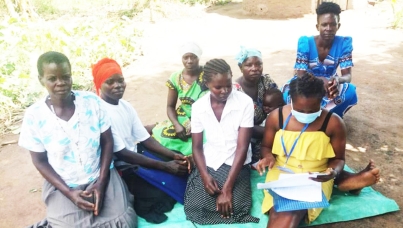African sentiment is favouring Ukraine
A majority felt that the Russian invasion of Ukraine was against the principles of international law, that Russian forces should withdraw from Ukraine and that Russia was guilty of committing war crimes in Ukraine.
These were the most important findings in a random study among individuals 18-years-old and older, who expressed an interest in news and politics in South Africa, Kenya, Nigeria, Senegal, Uganda, and Zambia.
In conducting the polling, several statements were read out to each respondent, and they then had to indicate whether they strongly disagreed, disagreed, neither disagreed nor agreed, agreed, or strongly agreed with each of the statements.
A minority agreed with the statements looking at the war from the Russian point of view – and in none of the six countries did a majority choose to agree with any of the three statements. However, South Africans were split down the middle in virtually equal proportions regarding all three opinions.
Africans expressed strong feelings that their continent should stay nonaligned or neutral in this conflict and Kenyans, especially, felt that Africa should not take sides in the war. A smaller proportion of Nigerians, however, thought quite strongly that Africa could not afford to remain neutral in the war and should support Ukraine.
Large majorities agreed that the war was not in Africa’s best interest, as it had detrimental effects on food supply and energy costs at home. Large majorities also agreed that “having lived through colonialism, conflict and forced occupations, we should not support any country in their attempts to illegally annex parts of another country without consequences”. However, Africans are not immune to regretting the devastation of war and they feel that both Russians and Ukrainians are war victims.
Most Africans took a neutral stance when asked about whether their own government should support Russia or Ukraine. Majorities maintained that the ideal outcome would be somewhere in the middle of the two extremes. It is important to observe that larger proportions in all seven countries thought support for Ukraine rather than for Russia was in the best interest of their countries.
Finally asked to make a personal choice there were definitely little ambiguity, and a majority in both Kenya and South Africa supported Ukraine. Substantial proportions in the other countries followed suit.
For more information on this news release, please contact:
|
Mari Harris Ipsos Sub-Sahara Africa Knowledge Director: Public Affairs Mobile: +27 (0) 82 557 5058 |
|
About the study
|



